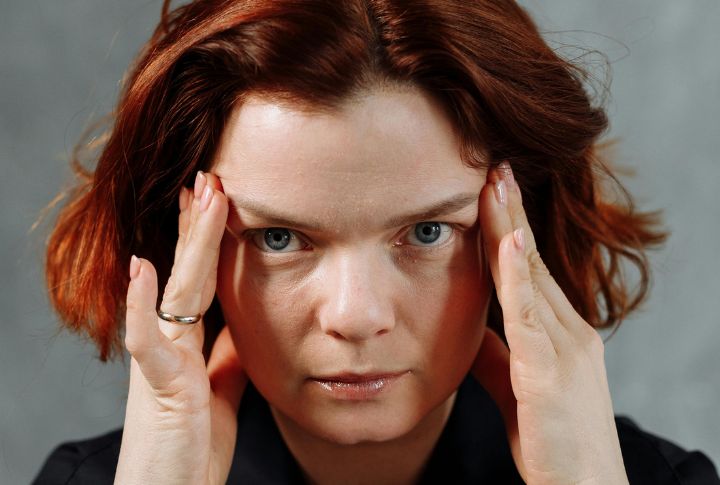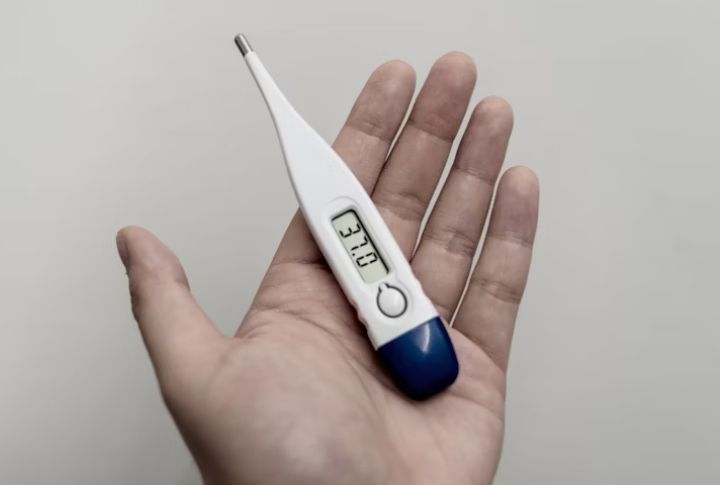
Do you wonder why chocolate cravings hit like clockwork, or why some days your brain feels sharp while others leave you in a fog? The answer lies in your body’s intricate hormonal symphony—a complex network of chemical messengers orchestrating everything from your sleep patterns to your emotional responses. These invisible forces shape far more than just your monthly cycle. Want to see which hormones are driving these shifts? Keep reading.
Boost Brain Function And Memory

Your brain absolutely loves estrogen—it’s like premium fuel for cognitive performance. This hormone also boosts blood flow to memory centers, alongside increasing synaptic density in vital regions. When estrogen drops during menopause, that frustrating brain fog kicks in, making simple tasks feel surprisingly challenging.
Manage Blood Sugar And Energy

Blood sugar fluctuations directly affect your mood and concentration throughout the day. Insulin acts like a key by unlocking cells so glucose can enter and provide energy. In fact, estrogen actually improves insulin sensitivity in premenopausal women, but resistance becomes common during PCOS and menopause.
Regulate Stress And Mood

Meet cortisol, your body’s built-in alarm system that responds to both physical and emotional stressors. Unfortunately, chronic rise leads to fatigue and unpredictable mood swings. High cortisol also suppresses reproductive hormones. However, mindfulness practices and regular exercise help keep levels balanced.
Promote Calm And Relaxation

Think of progesterone as nature’s chill pill working behind the scenes. It activates GABA receptors throughout your nervous system, further promoting deep relaxation and reducing nighttime awakenings. And when progesterone levels drop, anxiety and irritability often spike and leave you feeling unexpectedly on edge.
Maintain Muscle Strength

Seems like women need testosterone too, just in smaller amounts than men! The hormone is produced in your ovaries and adrenal glands, and it supports protein synthesis and muscle repair processes. As levels naturally decline with age, maintaining strength becomes harder, but resistance training can give testosterone a natural boost.
Control Sleep Patterns

Do you know why your sleep schedule feels like a mystery? Because there is a sleep–wake rhythm maintained by different hormones. Melatonin rises each evening to signal bedtime, while cortisol peaks in the morning hours to wake you up. In fact, for fragmenting deep sleep, chronic stress is responsible, as it raises cortisol levels.
Drive Metabolism And Emotional Balance

T3 and T4 hormones control how efficiently your body burns energy for daily functions. Hypothyroidism causes stubborn weight gain and lingering depression that feels impossible to shake. Women even develop thyroid disorders more frequently, with symptoms that often mimic anxiety and brain fog.
Improve Skin Health And Elasticity

Estrogen acts like your skin’s personal beauty consultant by stimulating collagen production to maintain that coveted firmness. This powerhouse hormone also enhances skin thickness while boosting moisture retention, which explains why younger women often have that enviable glow. As estrogen levels drop, however, dryness and fine lines make their unwelcome debut.
Affect Body Temperature

Notice how your body feels warmer during certain times of the month? That’s progesterone raising your basal temperature right after ovulation, creating a natural thermometer for tracking fertility. Meanwhile, estrogen fluctuations trigger those infamous hot flashes and night sweats that leave you kicking off blankets unexpectedly.
Influence Appetite And Cravings

Hunger isn’t random—it’s orchestrated by hormones sending specific signals to your brain. Leptin tells you when you’re full, whereas ghrelin triggers genuine hunger pangs. Estrogen also suppresses appetite during your follicular phase, but progesterone increases cravings later, especially when sleep-deprived and hormone balance suffers.
Build Connection And Trust

Oxytocin floods your system during intimate touch and meaningful connections with others. This powerful hormone is also responsible for strengthening bonds between romantic partners and deepening relationships with children. Levels even surge during childbirth and breastfeeding while reducing social anxiety and naturally promoting empathy toward others.
Protect Bone Density

Strong bones depend heavily on estrogen’s ability to facilitate efficient calcium absorption. In fact, after menopause, bone loss accelerates dramatically. To mitigate this, consistent weight-bearing exercise and adequate vitamin D intake can strengthen skeletal integrity and support mineralization.
Support Lactation Health

Most women associate prolactin solely with breastfeeding, but this hormone stays active throughout your entire reproductive life. Stress and poor sleep can send prolactin levels soaring, causing tenderness even when you’re nowhere near having a baby. Also, pituitary tumors may lead to abnormal prolactin levels.
Regulate Sexual Desire

Sexual desire isn’t just mental—it’s deeply hormonal, driven primarily by testosterone levels. Both estrogen and testosterone influence arousal patterns, so low levels of either can significantly reduce your interest. Fortunately, hormone therapy can restore sexual satisfaction and intimacy during midlife transitions.
Stabilize Emotions

The connection between hormones and emotions runs deeper than most people realize. When estrogen levels drop, it disrupts the balance of serotonin and dopamine in your brain, often leading to unexpected bouts of depression or irritability. Even hormonal birth control can shift your emotional balance entirely.
Determine Fat Distribution

Your body doesn’t randomly decide where to store those extra pounds—hormones are calling all the shots. During your reproductive years, estrogen directs fat toward your hips and thighs, but menopause changes the rules entirely. Suddenly, everything heads straight to your midsection, especially if insulin resistance joins the party.
Direct Fertility And Ovulation

Behind every pregnancy is an intricate hormonal dance orchestrated with precision timing. Your brain releases FSH to wake up those sleepy ovarian follicles, then sends a surge of LH to trigger ovulation at exactly the right moment. If this delicate choreography gets disrupted, irregular cycles and fertility struggles often follow.
Influence Hair Growth

Your hair is basically a hormone report card, telling the story of what’s happening inside your body. Estrogen keeps those growth cycles long and luscious by giving you thick, healthy strands that seem to grow forever. But when androgens take over, you might find unwanted facial fuzz while your scalp starts thinning.
Regulate Menstrual Cycles

When estrogen and progesterone fall out of sync, your body signals stress through irregular bleeding or pain. Therefore, recognizing this pattern helps you anticipate cycles, respond proactively, and feel more in control rather than caught off guard.
Affect Vision

Estrogen can dial up tear production and keep eyes comfortably moist, which is why dryness often shows up around menopause. Thyroid dysfunction, on the other hand, may bring on blurred or double vision. And when hormonal migraines strike, visual disturbances can crash the party, too.
